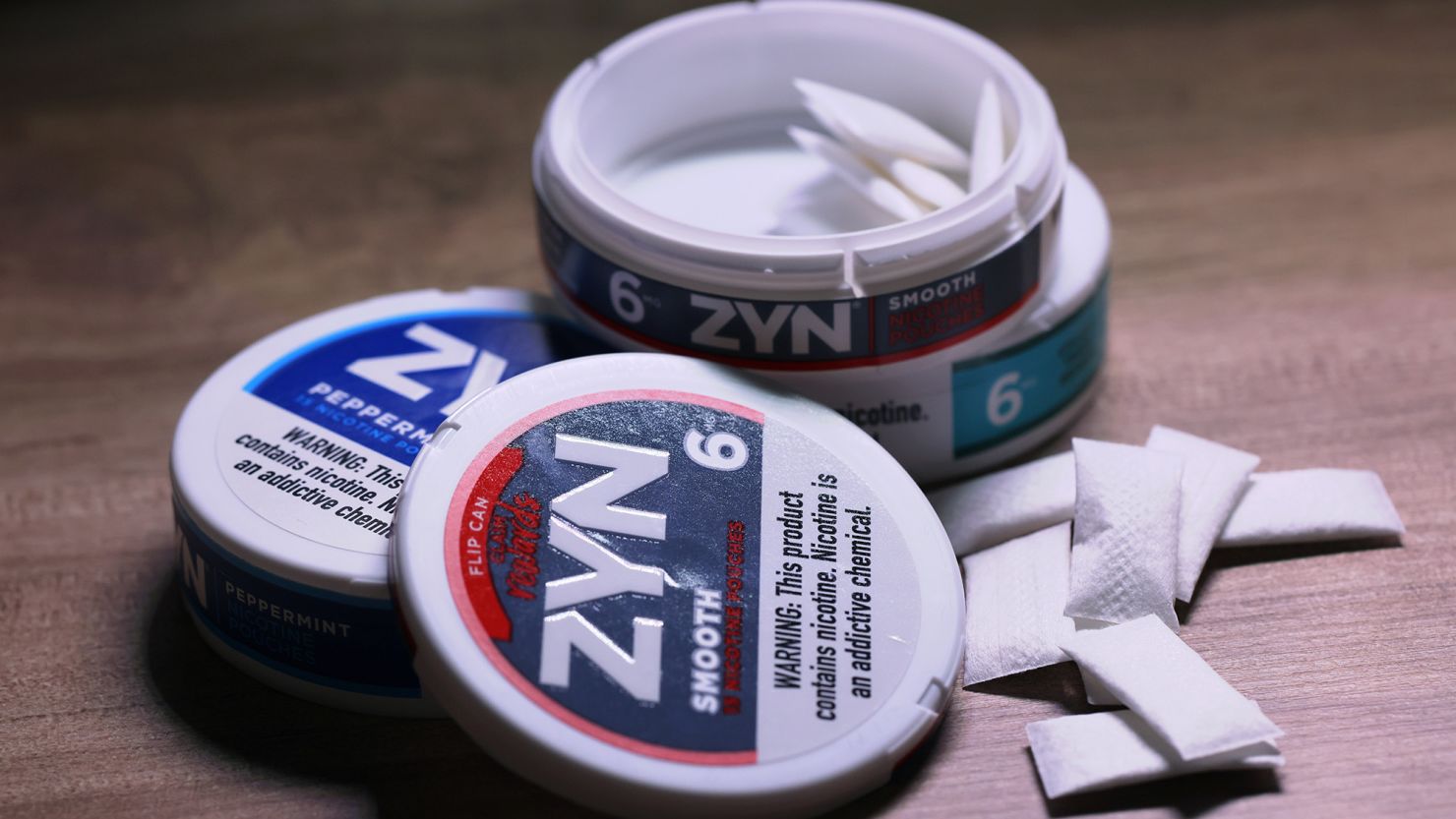What are ZYN Rewards? Emma Argues with Principal Figgins
ZYN Rewards are like a little thank you from the makers of ZYN nicotine pouches. Think of it like those old-school loyalty stamp cards you might get at a coffee shop: buy enough ZYN, collect enough points, and you can trade those points in for cool stuff. The prizes range from ZYN merch to sweet discounts, and sometimes even electronics or gift cards.
It sounds simple, right? But, like anything worth having, there are some catches. You’ve gotta be the right age and follow their rules, and sometimes those big-ticket rewards take a lot of saving up points-wise.
Of course, sometimes the system glitches, rewards go out of stock, or maybe you think the whole thing could be much better. Whatever your beef is, knowing how ZYN Rewards works and what your rights are as a user is key to getting the most out of the program – and maybe even landing those awesome prizes.
The Concept Behind ZYN Rewards
Let’s be real: loyalty programs are everywhere – your grocery store, the airline you sometimes fly with, and even your favourite streaming service probably try to reward you for sticking around. ZYN Rewards is the same idea; it was made for ZYN users. It plays on that basic human desire to feel appreciated and get something extra.
Think of it like this: ZYN knows people are gonna be buying their pouches anyway, so why not give them a little extra incentive? Scan a code, get some points, and boom – you’re working towards that sweet ZYN hoodie or maybe even a new pair of headphones. It makes you feel a bit special and can make the cost of your ZYN habit feel a little less painful.
Of course, from ZYN’s side, it’s not just about being nice. Rewards programs keep customers engaged, give the company valuable data, and can even encourage people to buy more than they normally would to hit that next-point goal. It’s a win-win, as long as you understand how to play the game.
Origin and Purpose
ZYN Rewards wasn’t always around. It actually launched pretty recently as a way to tackle a few problems ZYN was facing. First, nicotine pouches are still relatively new, and the market is flooded with competitors all vying for your attention. Rewards programs are a tried-and-true way to build brand loyalty and get people coming back for more.
Secondly, the whole nicotine pouch scene was getting some negative press. ZYN Rewards acts as both an age-verification method (gotta be of legal age to join) and a way to address concerns about getting pouches into the hands of younger people. The program incentivizes responsible use while still letting folks enjoy the product.
Lastly, let’s not forget that data is king these days. Rewards programs let ZYN understand their customer base way better. What flavours are hot? Where are people buying? This kind of info helps them perfect their products and determine what cool rewards will excite people.
How ZYN Rewards Work
The basic idea is super simple. You buy specially marked ZYN cans with a unique code under the label. You create an account on the ZYN Rewards website (they’ll check to ensure you’re old enough to participate!), then enter those codes. Each code gets you 15 points.
Once you start racking up points, it’s time for the fun part – the reward store! They’ve got ZYN-branded merch, gift cards, electronics, and sometimes even special experiences. Prices are in points, so you save up and “buy” what you want.
Now, for the important details, you can only enter up to 60 codes a month, so there’s a limit to how fast you can score points. Also, rewards change and stuff can go out of stock, so if you see something you absolutely gotta have, don’t sit on your points for too long!
Emma’s Perspective on ZYN Rewards
Okay, let’s be honest, Emma’s a pretty savvy ZYN user. She knows the flavours she likes and will buy them anyway, so the rewards program is a nice bonus. She’s not the type to hunt down limited edition flavours for the extra points, but she always scans her codes.
Emma likes that ZYN Rewards seems fair – you get what you put in. She’s mostly saving up for gift cards right now, as those seem like the best value for her points. She rolled her eyes at some of the super pricey electronics on offer – who has time to save that many points?!
Overall, Emma sees ZYN Rewards as a cool perk, but not something that will change her life. It’s a nice little surprise when she has enough to snag a gift card for her favourite online store, but it’s not why she chooses ZYN over other brands.
Emma’s Argument with Principal Figgins
So, how did ZYN Rewards land Emma in hot water with Principal Figgins? Here’s the likely scenario. ZYN Rewards probably asks users to verify their age when signing up. Figgins, ever vigilant, might have caught wind of Emma (or a student) bragging about the program or a cool reward they scored.
Figgins might be concerned that ZYN Rewards is a sneaky marketing tactic aimed at teens. He might worry kids are more focused on scoring points than their grades, or that the rewards (gift cards, electronics) are too tempting. On the other hand, Emma likely argued that ZYN Rewards is just a harmless loyalty program, like those offered at grocery stores or coffee shops. She might point out that age verification is built into the program and that ZYN isn’t exactly known for marketing to teenagers.
This is where Emma’s argument gets tricky. ZYN Rewards might be perfectly legal, but schools often have stricter rules to protect students. Figgins might have a point about the potential for distraction, and ZYN’s marketing materials might not explicitly target teens, but some of those rewards could be appealing to a younger crowd.
Why Emma Supports ZYN Rewards
Okay, let’s face it: Emma isn’t supporting ZYN Rewards out of some deep-seated brand loyalty. She’s a pragmatist. She likely appreciates the program:
- The Low Effort, High Reward Ratio: Emma’s into those “why not?” situations. She already plans on buying ZYN, so scanning a code for a few points feels like a no-brainer. It takes seconds, and those points add up over time.
- It Feels Exclusive: Even though anyone of legal age can join, there’s something vaguely cool about being in a rewards “club”. It scratches that itch for getting something extra that most people don’t.
- The Potential for “Surprise” Wins: While Emma mostly focuses on practical rewards like gift cards, she admits the prospect of those big-ticket items (fancy headphones, new tech gadgets) is tempting. It adds a bit of a treasure hunt element to the whole thing, even if the odds of winning are slim.
Principal Figgins’ Standpoint
It’s easy to see why Principal Figgins is giving ZYN Rewards the side-eye. He’s not just some grumpy old dude trying to ruin everyone’s fun; he’s got valid concerns.
Firstly, student well-being is his top priority. Nicotine pouches, even if aimed at adults, are still addictive substances. He might worry that a rewards program could inadvertently normalise or glamorise their use, especially for impressionable teens.
Secondly, schools are battlegrounds for distraction. Figgins might argue that instead of focusing on studies, kids might daydream about the next cool reward or try to outdo each other with how many points they’ve racked up.
Lastly, even with age verification in place, it’s not foolproof. Kids are resourceful, and he might feel ZYN Rewards lacks the safeguards to prevent underage users from slipping through the cracks. Even if Emma is responsible, Figgins must consider the whole school’s worst-case scenario.
Concerns About ZYN Rewards
ZYN Rewards isn’t all sunshine and gift cards; some legitimate concerns are worth considering: Normalization of Nicotine Use: Even with age restrictions, rewards programs can send a subtle message that nicotine product use is desirable or rewarding. This is especially worrisome considering how addictive nicotine is, and the fact that young brains are still developing.
- Underage Access: While ZYN might do their best, age verification systems aren’t perfect. Kids might find workarounds or older friends/siblings might supply them with cans for easy point collecting. This fuels the worry that the program indirectly targets a younger audience.
- Data and Privacy: Rewards programs are notorious for collecting user data. People might be concerned about what info ZYN tracks and how that data is used or shared. Targeting ads for new flavours is one thing, but some users might find it intrusive if data goes beyond that.
Views on Emma’s Argument
Emma’s got a point – ZYN Rewards seems like a harmless perk for adult users already buying the product. Here’s why some might agree with her:
- Freedom of Choice: Adults should have the autonomy to make informed decisions about what they consume, especially if it’s a legal product. As long as the program is age-gated and marketing doesn’t specifically target teens, some argue it’s simply a way for ZYN to reward loyal customers.
- Focus on Personal Responsibility: Emma’s approach – using the program for small rewards without getting carried away – highlights the importance of personal responsibility. Adults can choose to participate or not and decide how much effort they put into collecting points.
- It’s Not Like Candy: Unlike flashy marketing campaigns for sugary drinks, ZYN Rewards doesn’t shove the product in your face. It’s a passive system that relies on existing users to opt in. Some argue this makes it less likely to be manipulative or create a sense of urgency, especially for teens.
However, it’s important to remember that Emma’s perspective doesn’t negate Figgins’ concerns entirely. There’s still a potential for unintended consequences, and that’s where the debate gets trickier.
The Impact of ZYN Rewards on Students
So, what’s the big deal about ZYN Rewards in a school setting? Here’s how it could play out, both the good and the bad:
- Distraction and Peer Pressure: A rewards program could become a distraction even if kids aren’t directly using ZYN products. Students might compare points, brag about what they’re saving for, or even try to game the system to get more points. For those struggling to focus, this adds another tempting layer.
- Normalization and Influence: Regardless of ZYN’s intentions, any program that makes the product seem more accessible or desirable can chip away at the perception that nicotine use is harmful. Seeing peers excited about ZYN Rewards might subtly nudge some students towards curiosity, especially those already at risk.
- A Potential Gateway: There’s the concern that ZYN Rewards could act as a “gateway” to other nicotine products. While ZYN pouches might be seen as safer than smoking, addiction is complex. Some students might start with ZYN then move to riskier products, or see ZYN Rewards as justifying their use of other nicotine substances.
Positive Effects
It’s important not to paint ZYN Rewards entirely negatively. Some potential upsides worth considering:
- Incentivizing Responsible Use: For adult users, the rewards could promote moderation with buying pouches. Knowing you need to space out your purchases to hit higher point levels might slow down your usage overall.
- Promoting Brand Loyalty: This is good for ZYN but also can be good for consumers. If the program keeps users returning, it incentivises ZYN to maintain high-quality products and create new flavours that people actually want.
- The Fun Factor: Let’s not underestimate the simple joy of getting something for “free”. Especially if you snag a cool reward using points, it boosts satisfaction levels and makes the whole nicotine pouch experience feel more special.
Potential Drawbacks
Despite its potential positives, ZYN Rewards comes with a few notable downsides:
- Emphasis on Consumption: The whole point of the program is to get people to buy more ZYN. Even if unintentional, this could push people to use nicotine more often than they otherwise would just to hit those higher reward tiers.
- The Appeal of “Free Stuff” Rewards programs are designed to be enticing. For some, especially those struggling with spending habits or easily influenced by marketing, the promise of “free” stuff with ZYN purchases could be problematic.
- Long-term Impact: It’s hard to say definitively what the long-term impact of ZYN Rewards will be. Will it make a whole generation more tolerant of nicotine use? Will it lead to more addiction issues? These are questions that only time and further research can answer.
Real-life Examples of ZYN Rewards Implementation
It’s easy to talk about ZYN Rewards in theory, but how does it play out in the real world? Here are a few examples:
- The “I finally did it!” Moment: Imagine a user who’s been diligently saving up points for months. They finally snag those awesome wireless earbuds they had their eye on. That’s a concrete example of the rewards program working and delivering a tangible benefit to someone.
- The Online Community: Social media and forums are full of people sharing ZYN Rewards hauls, discussing point-saving strategies, and even showing off what they’ve redeemed. This shows how the program builds a sense of community and shared interest among users.
- The Debate: The fact that figures like Emma and Principal Figgins might clash over ZYN Rewards highlights its real-world impact. It shows that the program doesn’t exist in a vacuum, and it can influence the way people (especially students and educators) think about nicotine products.
The Future of ZYN Rewards in Education
The future of ZYN Rewards in schools is a big question mark. Here’s what could happen:
- Increased Scrutiny: Emma and Figgins’ argument might be just the beginning. ZYN Rewards will likely face more scrutiny from educators, parents, and public health officials. This could lead to stricter school policies banning discussion of the program or even restrictions on bringing ZYN products onto school grounds.
- Adaptations from ZYN: Faced with pushback, ZYN might need to rethink their program. This could mean stricter age verification methods, altered rewards that are less appealing to teens, or even educational components built into the program about the risks of nicotine addiction.
- The Debate Continues: The fundamental debate isn’t going away. Schools will constantly grapple with balancing student freedom against potential risks. ZYN Rewards is just one example, but as new products and marketing tactics emerge, similar discussions will occur.
Conclusion
The ZYN Rewards debate between Emma and Principal Figgins isn’t settled anytime soon. It highlights a complex clash between consumer choice, corporate marketing strategies, and the responsibility to protect young people. Whether you see ZYN Rewards as a harmless perk or a potential danger, it’s undeniable that these programs are here to stay.
As a society, we need to have open and honest conversations about the impact of nicotine products and the ways companies target their advertising. What are acceptable limits? Where’s the line between clever marketing and potential harm? The answers won’t be easy, but by understanding how programs like ZYN Rewards work, we can be more informed consumers, educators, and citizens.







